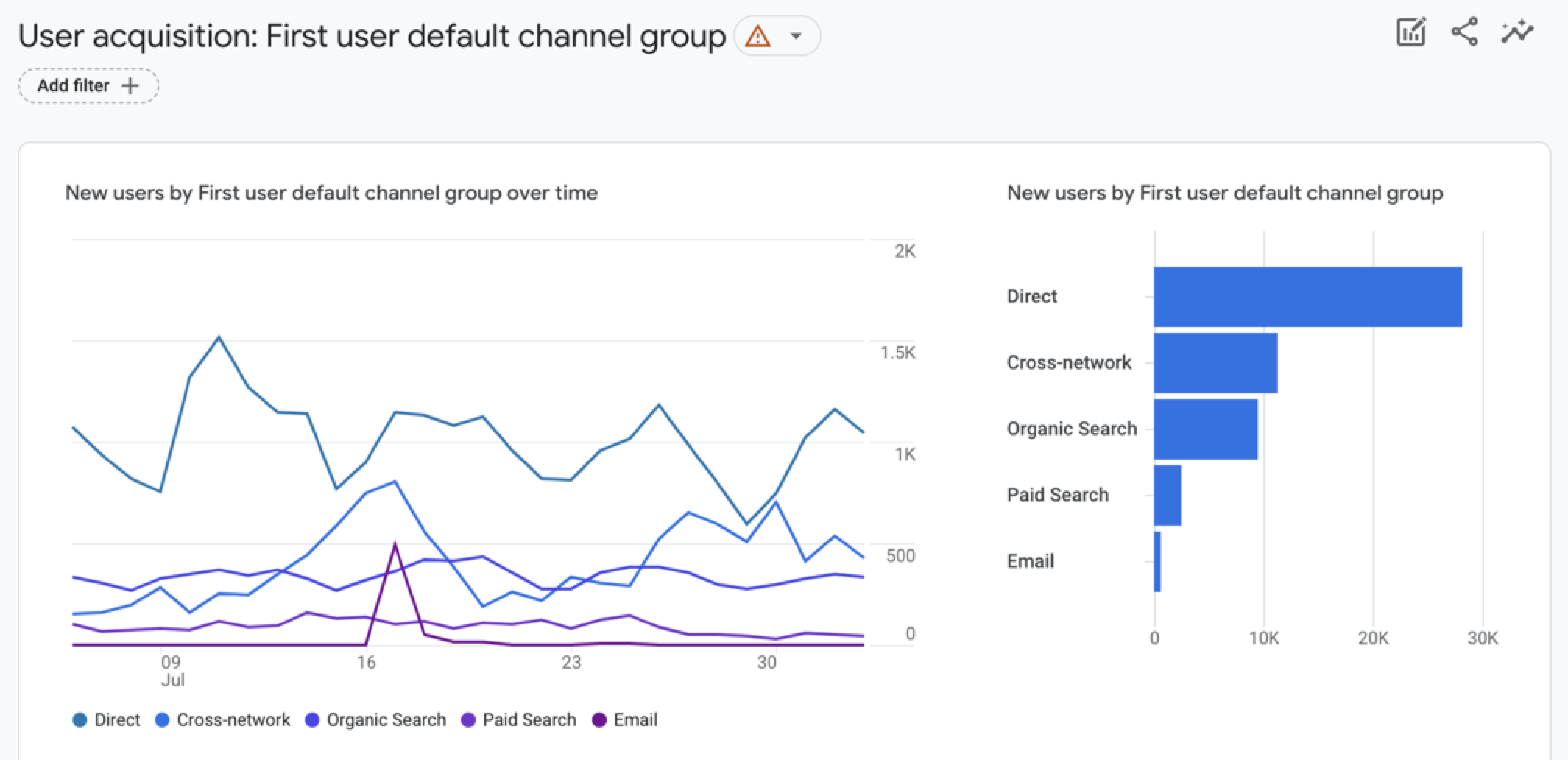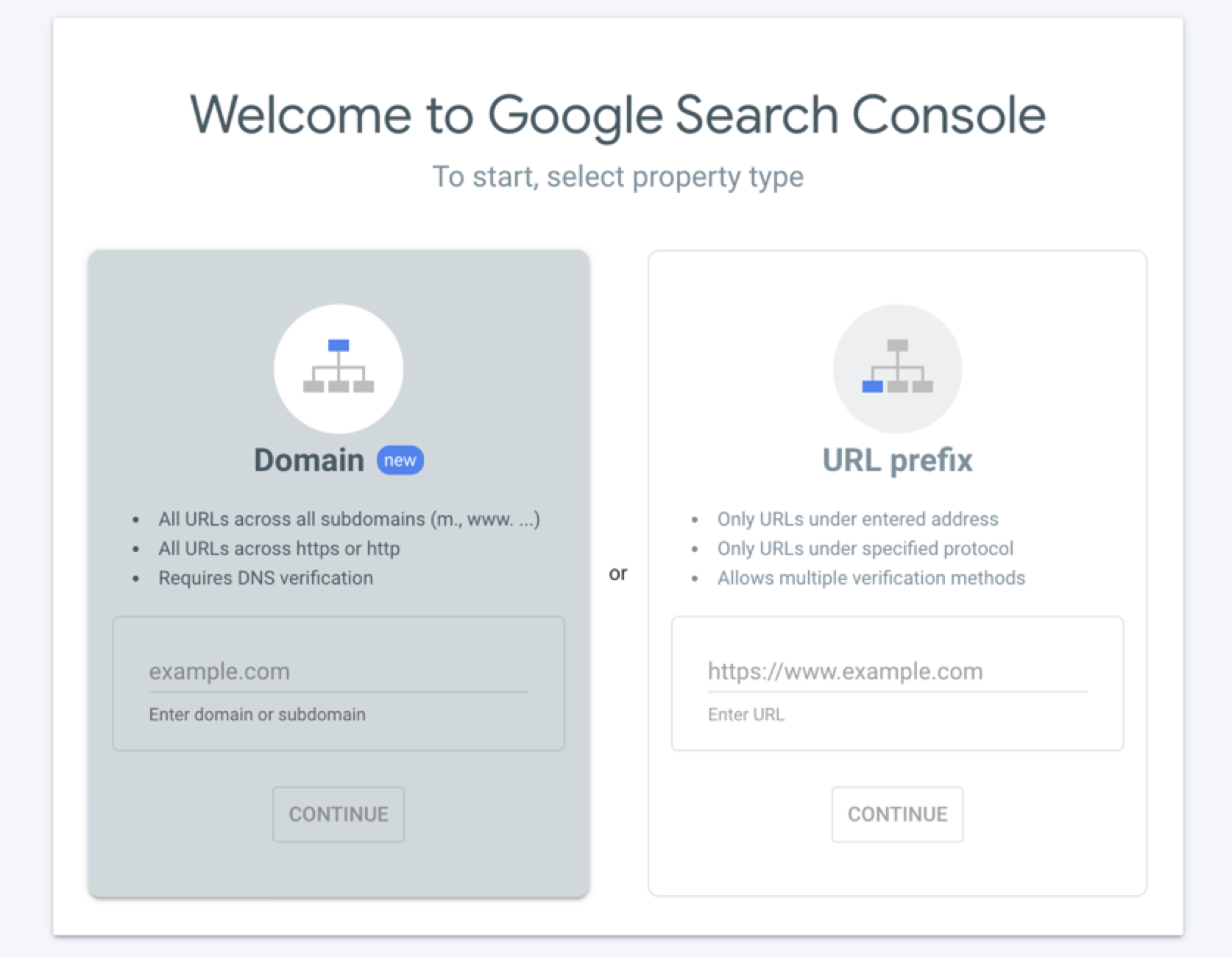-
 Published: Aug 3, 2023
Published: Aug 3, 2023
-
 6 min. read
6 min. read
-
 Abbey Stephan
Abbey Stephan Lead Editor
Lead Editor
- Abbey is a digital marketer, copywriter, and lead editor. She has worked on over 200 client campaigns and WebFX, and she specializes in marketing strategy analysis and industry-specific digital marketing plans. Outside of writing and editing, you’ll likely find her taking pictures of her cat, making a new playlist, or tending to her houseplants.
Understanding digital marketing performance can help you invest in the best strategies. Instead of relying on guesswork, you can use metrics and tips from experts to measure marketing performance.
This post will cover the following topics to help you with measuring marketing performance:
Read on to learn more. If you want to chat with a strategist about measuring your marketing performance, you can contact us online!
Join 200,000 smart marketers and get the month’s hottest marketing news and insights delivered straight to your inbox! “*” indicates required fields (Don’t worry, we’ll never share your information!)Don’t miss our Marketing Manager Insider emails!
Enter your email below:
Inline Subscription Form – CTA 72

How to measure marketing performance
What do you need to do to measure marketing successfully? The following points can help you get the most out of your approach:
1. Set goals for your marketing campaigns
Before measuring your marketing performance, you must set goals to measure your progress correctly. Your goals should be SMART goals, meaning they are:
Specific: Make your goals sufficiently detailed.
Measurable: Include particular numbers that you can measure.
Attainable: Set goals that you can reasonably achieve.
Relevant: Ensure your goals support your overall business objectives.
Timely: Set a deadline for completing your goals.
For example, “gain new leads” is not a SMART goal. A SMART version of that goal would be “increase the number of leads gained per month to 100 by the end of the quarter.”
You might want to achieve different goals depending on your business’s nature and broader objectives. Some goals you might want to set include increasing the following:
Brand awareness: How familiar consumers are with your brand and its characteristics.
Number of leads: The number of potential customers who have expressed interest in your products, services, or company.
Sales: The number of sales you close or the gross revenue from those sales.
Net revenue: The amount of income your company receives minus expenditures.
Customer acquisition: The number of new customers you gain.
Engagement: The degree to which customers interact with your brand and the quality of those interactions.
Customer loyalty: How willing customers are to do business with your company repeatedly.
2. Choose data-tracking software
One of the benefits of digital marketing is that measuring marketing performance is much easier than traditional marketing. With traditional marketing mediums, such as billboards or magazine ads, you can’t easily track who saw your ad and whether your ad contributed to your goals.
However, digital marketing efforts are Internet-based, so you can access accurate, detailed information about how your campaigns perform. Here are a few of the tools you can use to measure your marketing campaign’s performance.
Google Analytics 4
GA4 is one of the most powerful marketing performance measurement tools, and — best of all — it’s free! Your company should sign up for GA, even if you’re also using other tools.
Once you add the necessary JavaScript tracking code to your site, GA4 will track how users interact with your site and ads. The main types of interactions GA44 tracks are:
Event hits: Every time users perform a specific action on a page, such as clicking a button.
Ecommerce purchases: Every time a visitor purchases a product.
Traffic acquisition: How a customer found and visited your website.
GA4 lets you set marketing goals for how many users visit a specific page, how many visitors take a particular action, and other factors. Using GA4, you can access reports about your site’s performance and goals. Here is an example traffic acquisition report:

Google Search Console
Another valuable tool from Google is Google Search Console (GSC). This free tool is helpful for tracking your site’s SEO performance.

In GSC, you can check to ensure Google has crawled and indexed your sites, which is necessary for appearing in search results. You can also see data about your site’s performance in search, such as:
Your site’s total number of impressions and clicks
Your site’s average click-through rate
Your site’s average position in search results
Which search results include your site
GSC also provides information about other elements that influence your search rankings, such as your site’s mobile friendliness, security issues, and which other sites link to yours.
MarketingCloudFX
MarketingCloudFX is a digital marketing platform that enables you to manage your marketing campaigns. It offers numerous functions, including tracking how leads arrive at your site, measuring the results of email campaigns, and monitoring search engine performance.
With MCFX, you can pull in data from all marketing channels and turn it into real-time reports. Using this data, you can make better decisions about how to proceed with any marketing campaign.
Some specific features include:
Customer data storage
Call tracking capabilities
Integration with other marketing software
Email automation capabilities
3. Determine your key performance indicators (KPIs)
Deciding what metrics to track is critical for keeping up with your performance. Your KPIs tell you about your campaign’s health and progress. With these metrics, you can adjust your campaign and prevent wasted time and resources.
The metrics you track vary depending on your approach. For example, impressions might be more vital if you prioritize social media. However, impressions might not be the focus if your main goal is better SEO.
4. Create a schedule for tracking performance
Once you have your marketing goals, metrics, and tools ready, start tracking your metrics. Evaluate your progress regularly and adjust your strategies as needed. You should create a schedule for monitoring your campaigns to stay on top of your progress.
For some projects, such as pay-per-click ad campaigns, you’ll only track performance for the duration of your campaign.
Other efforts, such as SEO, will require ongoing tracking. Track the metrics relevant to your campaign and keep records of your progress so that you can continually improve your strategies. Over time, this process will help you grow your company and meet your overall business objectives.
5 metrics to track to measure marketing performance
So, what KPIs should you be tracking? Below are five different options to track for your campaigns:
- Conversion rate
- Cost per lead (CPL)
- Customer lifetime value (CLV)
- Return on investment (ROI)
- Mobile leads, traffic, and conversion rates
1. Conversion rate
The conversion rate is the proportion of customers that take a specific desired action, such as making a purchase or signing up for an email list — whatever you want users to do.
2. Cost per lead (CPL)
Your CPL measures how much it costs to gain a new lead. To calculate these metrics, you must factor in the cost of advertising, software, and other elements contributing to achieving the lead.
3. Customer lifetime value (CLV)
CLV tells you how much a customer is worth to your company. First, multiply the average purchase value by the average purchase frequency to get customer value. Then, multiply customer value by the average time a customer stays with your company to get customer lifetime value.
4. Return on investment (ROI)
Your ROI is how much you earn compared to the amount you invest. It tells you if your investments were profitable and by how much. You can calculate ROI by dividing your net profit by your total investment and multiplying by 100.
5. Mobile leads, traffic, and conversion rates
Mobile metrics can point to your marketing’s health. If you fail to optimize for mobile, you miss out on a significant lead pool — more than 40% of online transactions happen on mobile devices.
You can use your data tracking software to look for mobile performance and issues. From there, you can look for issues like bounce rate and missed conversions to see where you fall short.
Stat: [more than 40% of online transactions happen on mobile devices] Source: Google
Mistakes to avoid when measuring marketing performance
There are many common mistakes when measuring marketing performance. However, the following should be avoided to give you the best chance at succeeding:
- Relying on vanity metrics: Some metrics look nice on paper, but don’t point to your marketing campaign’s effectiveness. Spending too much time on vanity metrics will confuse your approach.
- Manually processing data: Not using data tracking software can cause manual errors and demand extra time. Using software will simplify the process and give you better, more accurate results.
- Measuring too soon: Some strategies (like SEO) take time to track. If you start tracking too soon and give up, you will miss out on potential improvement.
Working with an agency can streamline the process if you want help measuring your marketing performance.
Your world-class, tech-enabled marketing agency with over 1.6 million hours of combined expertise.Meet WebFX:

Track your marketing performance with WebFX
WebFX makes it easy to measure marketing performance with a team of experts at your side. With 28 years of experience in the field, we can help you set up, monitor, and adjust marketing campaigns to drive revenue.
So far, we have driven $6,021,182,299+ and 24,859,684 leads for our clients. Want to be next? Request a free quote online today!
-
 Abbey is a digital marketer, copywriter, and lead editor. She has worked on over 200 client campaigns and WebFX, and she specializes in marketing strategy analysis and industry-specific digital marketing plans. Outside of writing and editing, you’ll likely find her taking pictures of her cat, making a new playlist, or tending to her houseplants.
Abbey is a digital marketer, copywriter, and lead editor. She has worked on over 200 client campaigns and WebFX, and she specializes in marketing strategy analysis and industry-specific digital marketing plans. Outside of writing and editing, you’ll likely find her taking pictures of her cat, making a new playlist, or tending to her houseplants. -

WebFX is a full-service marketing agency with 1,100+ client reviews and a 4.9-star rating on Clutch! Find out how our expert team and revenue-accelerating tech can drive results for you! Learn more
Try our free Marketing Calculator
Craft a tailored online marketing strategy! Utilize our free Internet marketing calculator for a custom plan based on your location, reach, timeframe, and budget.
Plan Your Marketing Budget

Maximize Your Marketing ROI
Claim your free eBook packed with proven strategies to boost your marketing efforts.
Get the GuideTry our free Marketing Calculator
Craft a tailored online marketing strategy! Utilize our free Internet marketing calculator for a custom plan based on your location, reach, timeframe, and budget.
Plan Your Marketing Budget





